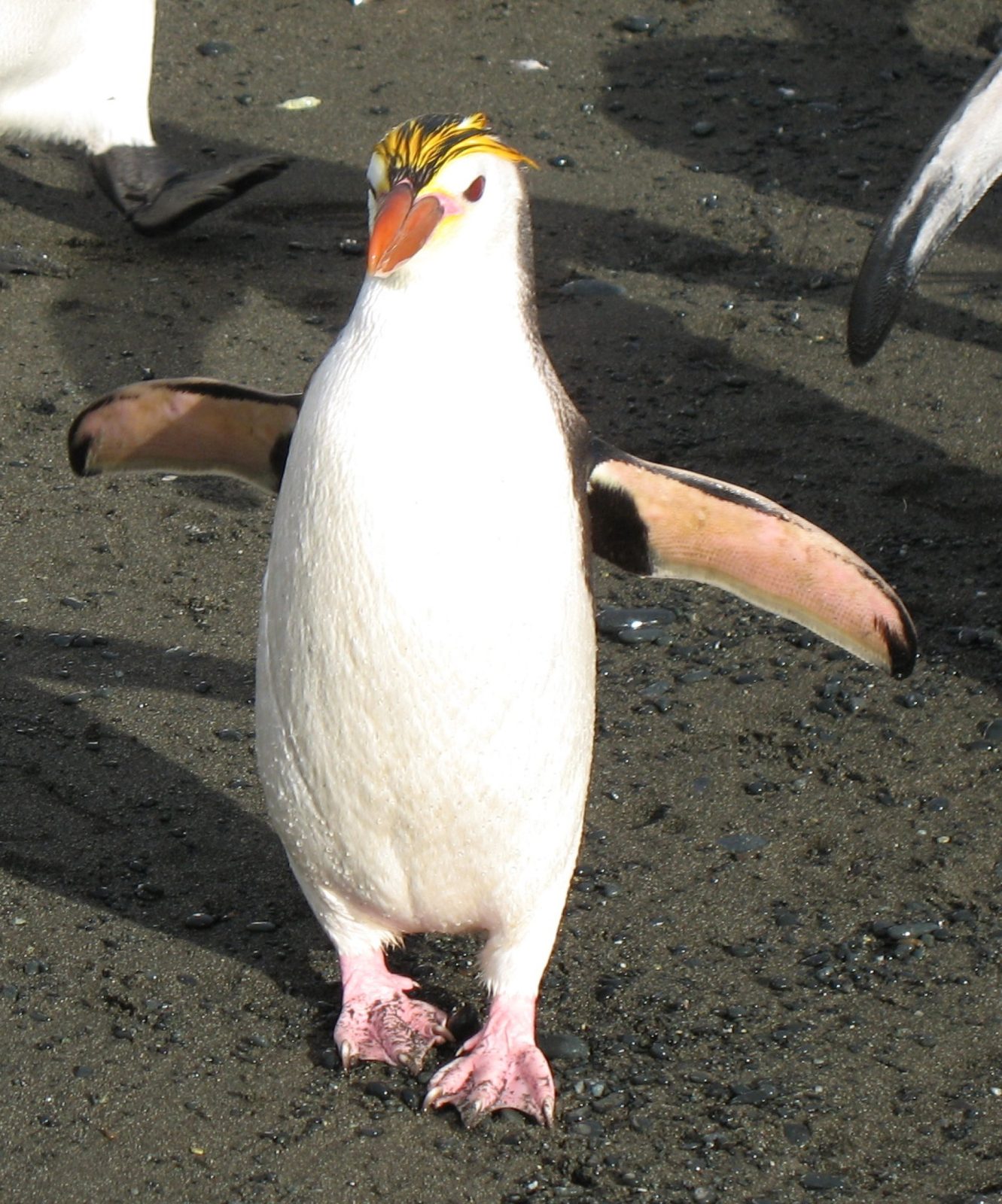
Royal penguin
 They are found Macquarie Island and adjacent islands, which are subantarctic species. They are classed as least concern with a population of around 1.6 million birds.
They are found Macquarie Island and adjacent islands, which are subantarctic species. They are classed as least concern with a population of around 1.6 million birds.
Young take 35 days to hatch, during which time the parents take it in turn to keep the eggs warm with 12 hour shifts. After the egg hatches, the male stays with the chick, while the female fishes for all three. This goes on for 2-3 weeks, and during this time, should the female fail to return, the chick dies. At 1 month old all of the young start grouping together for warmth, freeing up both parents for fishing, so that they can feed the chick 3 times a day. At two months old, they grow their adult plumage, and they leave for the sea, to fish for themselves. They eat small fish, krill and small amounts of squid.
When mothers have two eggs, bizarrely the female will often abandon the first egg, days before the second arrives. This means that the second is more likely to survive to adulthood.
Historically, between 1870 and 1919 they were hunted, with each penguin giving about half a litre of oil (along side king penguins). At its height, they were taking 150,000 each year.
Since the end of hunting, the population has climbed back to 850,000 pairs (1.7 million individuals) but before this was started, the island housed 3 million, so there is still some recovery to go. Of course, it is encouraging that with other populations getting closer to extinction, this one appears to be continuing it slow climb back to how it was before humans disastrous effects.
Below is part of a bbc documentary about the South Pacific. This covers the island in question, and the clip shows this penguin and the elephant seal which share this spec of land.
Beneath is our normal list of any articles on this species, unfortunately, there is little as yet. We hope to change that, but if you work in conservation or tourism around this species, do give us a hand. We would love to list tourism operations which operate around this species, help people find you. Click here to read more, enquire or list your operation. As we get these possibilities they will appear at the bottom of the page.